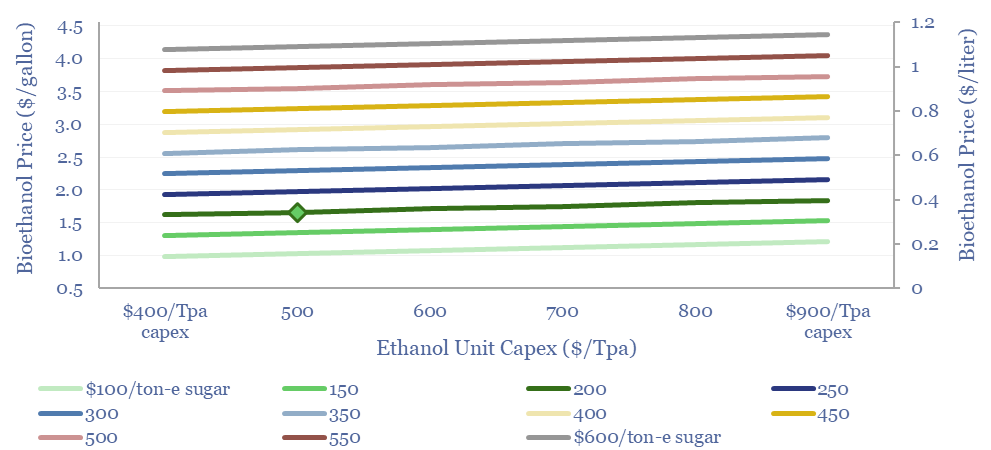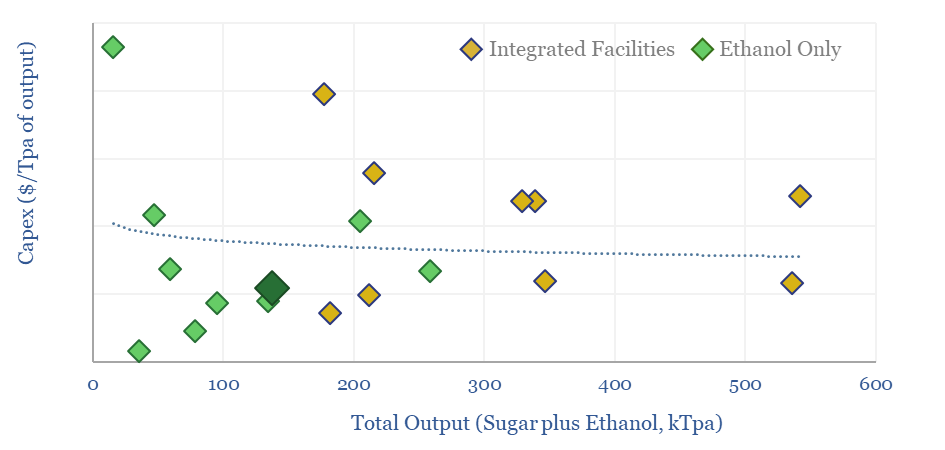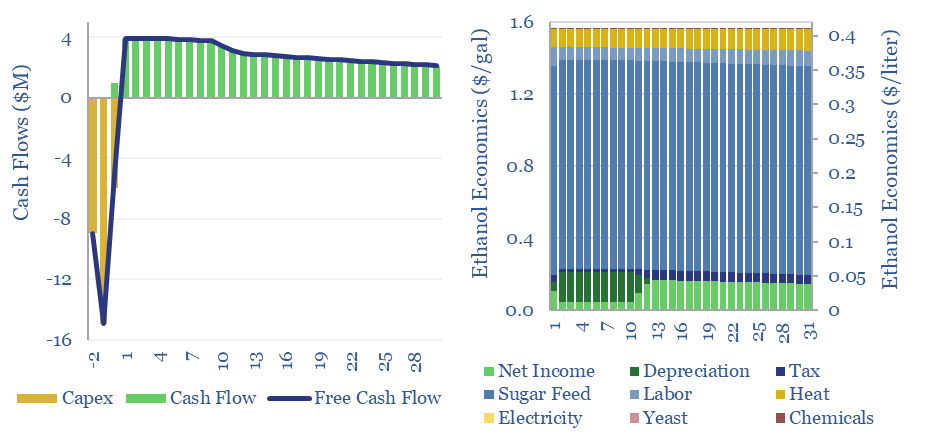This data-file captures the production cost of ethanol from sugar, as a biofuel. A 10% IRR requires $1-4/gallon ethanol, equivalent to $0.25-1/liter, or $60-250/boe, depending on input sugar prices. Net CO2 intensity is at least 50% lower than hydrocarbons.
Global ethanol production runs to 2Mbpd of liquids, or around 28bn gallons per annum. Around two-thirds is ethanol from corn, especially at US ethanol plants; while around one-third is ethanol from sugar, especially in Brazil and elsewhere in the emerging world.
Our base case scenario assumes the key input for ethanol production will be non-edible molasses, priced at $100/ton, generated as a non-crystallizing byproduct from sugar refining. Molasses might comprise c55% sugar by mass.
Molasses can be directly fermented into an alcoholic solution, then distilled to produce ethanol. Modern distilleries use the Melle-Boinot fermentation process, centrifuging and recycling yeasts. Distillation occurs in two stages, first recovering 94% ethanol from the mash, then 99.6% anhydrous ethanol, which can be blended as a fuel.
Feedstock comprises 60-70% of the cost of ethanol production in our base case, hence we have constructed an entire separate model to capture the costs of sugar production. The sensitivity of ethanol prices to input sugar prices is charted below.

Capex costs of ethanol production are estimated from past projects, specifically looking for examples that add a bioethanol unit adjacent to a pre-existing sugar refinery; while opex costs are based on disclosures in technical papers, also noted in the data-file.

Our build-up also captures the CO2 emissions of sugar-ethanol production. The carbon accounting is debatable, but generally shows sugar-based ethanol to be at least 50% lower-carbon than hydrocarbon fuels. Please download the data-file to stress test the cost of ethanol from sugar, or to compare with the cost of ethanol from corn.
